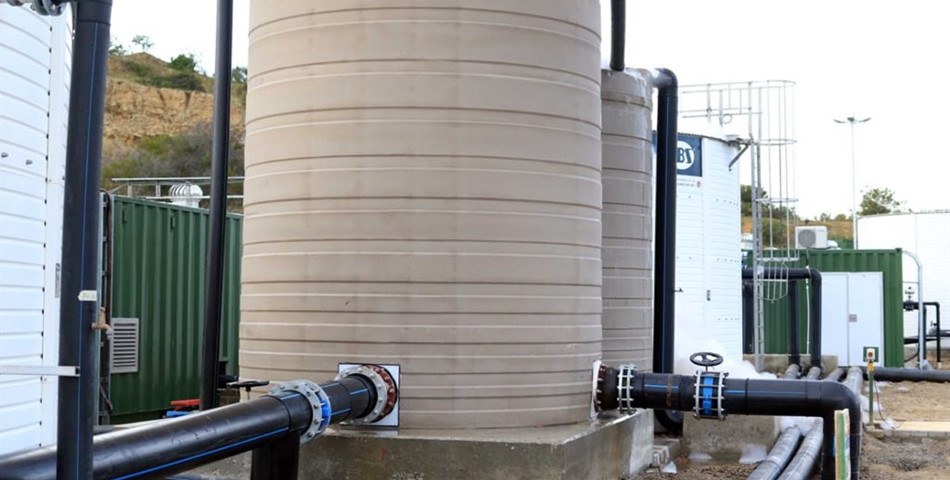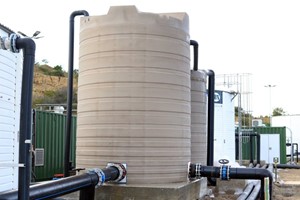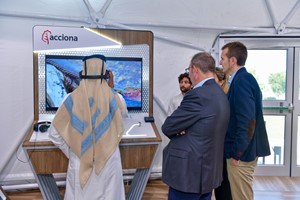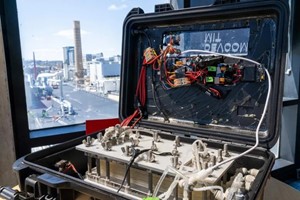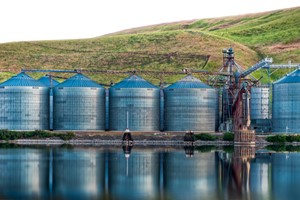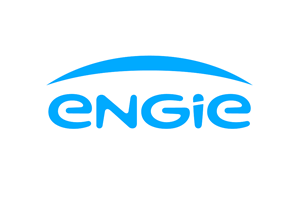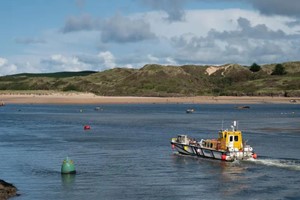A seawater desalination plant is up and running in Port Alfred, Eastern Cape – the first of its kind in the province.
The multimillion-rand plant, which aims to deal with the crippling water crisis brought on by protracted periods of drought, is fitted with state-of-the-art engineering technology to treat and process seawater so that it is suitable for human consumption.
Musawenkosi Ndlovu, director of Quality Filtration Systems, the company behind the project in the Ndlambe Local Municipality – an area severely hit by drought and water shortages – says water desalination is a viable solution to these challenges.
Speaking to City Press on the sidelines of a tour of the plant tour by deputy water and sanitation ministers David Mahlobo and Dikeledi Magadzi on Wednesday, Ndlovu said the project was unique because it had a desalination and wastewater plant at one site.
“This uniqueness makes it a sustainable solution, and we see this as a future for all coastal towns in South Africa because it is a sustainable solution and we cannot afford not to marry the two [desalination and wastewater processing],” she said.
Ndlovu said the water that came out of the processing plant was pristine, adding that the wastewater-reuse aspect of the project involved treating water from the Kowie River.
This is the third project of this kind undertaken by the company, following similar ventures in Beaufort West, the Western Cape and Ballito in KwaZulu-Natal.
Ndlovu, a mechatronics engineer by profession, said that after the water is processed in the plant, it is pumped to the municipal reservoir, which in turn takes care of the reticulation.
But in some instances, water is injected from the plant directly into the municipal line.
She said the reason the company built the desalination and wastewater section at one site was to reduce electricity usage.


The desalination plant produces 2 million litres of water a day, while the wastewater plant produces 3 million litres.
“But currently what is running is the desalination plant. Because of drought here, the volumes of sewage that are coming to the plant are low, so the reuse section is not working for now,” she said.
Explaining the process of desalination, Ndlovu said they draw water from the sea into a buffer tank and an ultrafiltration skid, where all the bacteria can be removed so that the water is safe for drinking.
“We remove the salt from the seawater through reverse osmosis, and the water product goes to the final water tank and gets pumped to the municipal reservoir, which is about 2.5km from here. In terms of the water quality that we produce, we don’t compromise and it is 100% safe,” she said.
Quality Filtration Systems will operate the plant for the next three years, during which time it will operate skills-transfer programmes to upskill local residents.
The project’s capital expenditure was R64 million and its operational expenditure was R65 million.
The plant is fully automated to ensure that there is no human error and that the water quality produced is not compromised.
The visit to the plant on Wednesday followed a meeting by Water and Sanitation Minister Senzo Mchunu and his deputies with Eastern Cape Premier Oscar Mabuyane and the provincial department of water and sanitation management at the East London International Convention Centre on Tuesday.
The minister also met with the embattled Amatola Water Board.
Lubabalo Ngcukana



